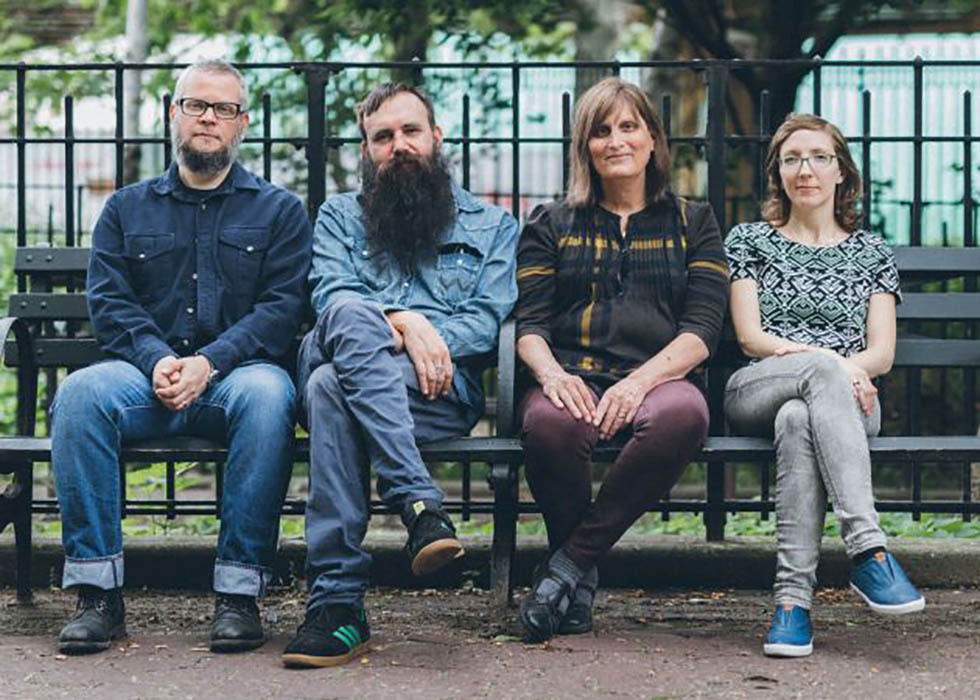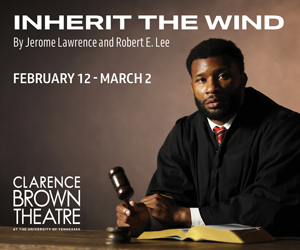Nate Wooley has been an extremely active trumpet player in the New York jazz and improv world since the turn of the millennium, collaborating with a dazzling array of musicians with a broad range of sounds. He’s also an inventive composer and bandleader, fluent in new music theories as much as more outré jazz styles. This is also evident in his day job as curator of the Database of Recorded American Music (www.dramonline.org) and as editor-in-chief of their online quarterly journal Sound American (www.soundamerican.org). His playing and compositions can certainly favor noise and hyperactivity, but also employ lovely lyrical touches and a more relaxed sound-for-sound’s-sake style.
These latter elements are forefront on his new Columbia Icefield project, a truly impressive quartet comprised of Wooley on trumpet, Mary Halvorson on guitar, Susan Alcorn on pedal steel, and Ryan Sawyer on drums. Inspired by a visit to the Columbia Icefield glacier range in the Rocky Mountains near the Pacific Northwest where Wooley was raised, the album would likely evoke icy landscapes and vast expanses even if its title didn’t guide the listener there. Wooley has extensive history playing with each of the band members in various groups and settings, but never in a context quite like this.
I spoke with Wooley about the album and his upcoming performances at the Big Ears Festival, the night before he was due to fly out for a series of Scandinavian concerts. Below is a condensed and edited transcript of our conversation.
————————
Eric Dawson: You’ve played with each of these performers before, so when you started conceptualizing the music for this project, did you have this particular set of musicians in mind?
Nate Wooley: Yeah definitely, I think as the idea came into my head, I knew immediately it was going to be that quartet. Mostly because I’d worked with them in different ways, and I heard their ability to do the music I was hearing in my head, and I knew that was something we had never done together before. I thought not only would it be fun to be together with my friends, I thought this was something that would push us all into a new way of thinking.
How would you describe the difference in this project and some of the things you had played with them before?
Nate Wooley: The real beginning of it, which solidified as I was at Columbia Icefield, was listening to this Ellen Fullman Long String Instrument record. And hearing it all of a sudden in this way where her music was doing one of three things, either moving forward and creating tension, or releasing tension, or there were times when it was doing neither, and just kind of existed. And it was so bald, because she was using this very stripped down situation. So with that on my mind, with those players I thought, here’s a chance for us to do that, where two members of the band aren’t doing much or making something pretty, and the other two are building or releasing tension. And being out in the Columbia Icefield brought all that home to me. Because you watch a glacier, this huge area of frozen matter, and you realize this monolith is making a movement but you can’t see it. So I wanted to make music like that, and in the past music I’d played with those people has been very active, aggressive, noisy or dense. So it was a chance to get everybody to buy into this idea of what if we’re just static, or play with tension and release. I think everybody plays differently on that record, and I’m really happy with the way everyone engaged with the idea and the composition.
How much of the music is composed and how much is improvised, and how much input did the musicians have in the composition?
Nate Wooley: They had a lot of input. I brought a lot of things in and it would get tweaked, that’s just a common experience, for me at least, when I’m composing for a group. As far as improvisation, there’s a lot less here than in most of my work. It’s the first thing I’ve done in a long time where composition was key, and we fit the moments of improvisation in. I think the concept of the pieces made everybody be way more economical in the way they played, and I think there are moments when you can’t tell people are improvising unless you’re looking at the score. Some of the things Mary does so seamlessly come out of what I’d written and then go into the next thing. And that’s nice, it’s become the vibe of the group and is a totally different thing for me.
You talk about the tension in the music, which is obvious when you hear it, but what isn’t maybe so obvious, and isn’t mentioned in the press release or reflected in the titles of the pieces, is any idea about climate change or environmental catastrophe. At the same time, because of where we we are with that, I default to immediately thinking about those things when seeing that an album is named after a glacier field. Was that on your mind, or can we all just not help but think about those things now?
Nate Wooley: Sure, yeah, it was on my mind, and I’m actually looking at a postcard of Columbia Icefield right now that a friend sent me, and when you think about it or going hiking at Glacier National Park in Montana and you look at pictures of what it used to be and you go experience it now, and you can notice the difference, and it’s hard not to have that on your mind. I didn’t put anything about climate change in the press release, mostly because I think a lot of people are dealing with that in a more elegant way than I’m able to. Like the way someone like Ashley Fure talks about it in her pieces, I just feel like I would rather redirect someone to them, because they have more knowledge and are more elegant in the way they put that forth than I’m able to do in this band. So sure it has something to do with that, but it’s not the central feature of the piece, and it’s not intended to be political in that way, but hopefully people will think about it.
Mind if I ask about the title of opening track “Lionel Trilling,” or do you prefer to just leave titles up to the listener to interpret?
Nate Wooley: That came out of when I was writing that piece, and the only book I had with me was Trilling’s The Liberal Imagination, and I both love Trilling and hate him. I became fascinated by the fact that I did have such mixed feelings about him, because in this day and age we’ve become so polarized, there are people that you love and you love everything they did, and there are people you hate and you hate everything they did. So to go back and read someone like Trilling, and actually have the complexity to totally agree with it, but something else not make any sense to me, it fascinated me and I felt like it also tied in with the tension and release and stasis thing I was thinking about. You have the release of, “Yes I completely agree,” and then the tension of “Well, did what he just say ruin everything that I believed that came before?”
I want to ask about your Seven Storey Mountain project. [An interconnected Thomas Merton-inspired series of performances and recordings Wooley has orchestrated since 2007, adding personnel during each new configuration.] When and how do you decide to record an addition to it, and do you think Big Ears might ever be a platform for that?
Nate Wooley: It’s funny because up through the fifth one, which was the last one I completed, it was always just this day when I was walking to work, and I would think this is what the next one is and this is who should do it. And then I would make calls, and it was in the works. Then I had a moment with number VI, which I’m working on now, it just became so massive. Seven Storey V is 19 people, which is a lot already. VI is 30, and it became a tipping point of where I can’t do this without help. I’ve had that one in mind for a year, and only recently got funding for it. There’s a certain point where your ideas come up against the economy. Where you can’t just ask your friends to do it for almost nothing. I’m going to do that one hopefully at the end of the year in New York, and I’ve always thought Big Ears would be an amazing place to do that, but I also recognize it’s really hard to put that piece on. In New York it’s one thing because people give you a day of their lives to come and do it. I’ve done V three times out of the country now and it’s such a massive undertaking to get my core of people from New York over, and get enough local people who are down to try it. In a lot of ways, Big Ears would be easier than say, Germany.
Yeah, usually so many people you know and have played with are already at Big Ears and playing other shows there.
Nate Wooley: It’s still a matter of economy, if you’re putting on a festival and all of a sudden there’s this huge, unwieldy piece that might be great but is also an investment. But it does make a ton of sense, actually, because it would be easier to get a pool of players who are already there, and there are so many players in the area that would be interesting to pull in. We’ll see, we’ll see.
————————
Columbia Icefield is out on Northern Spy Records, February 22






